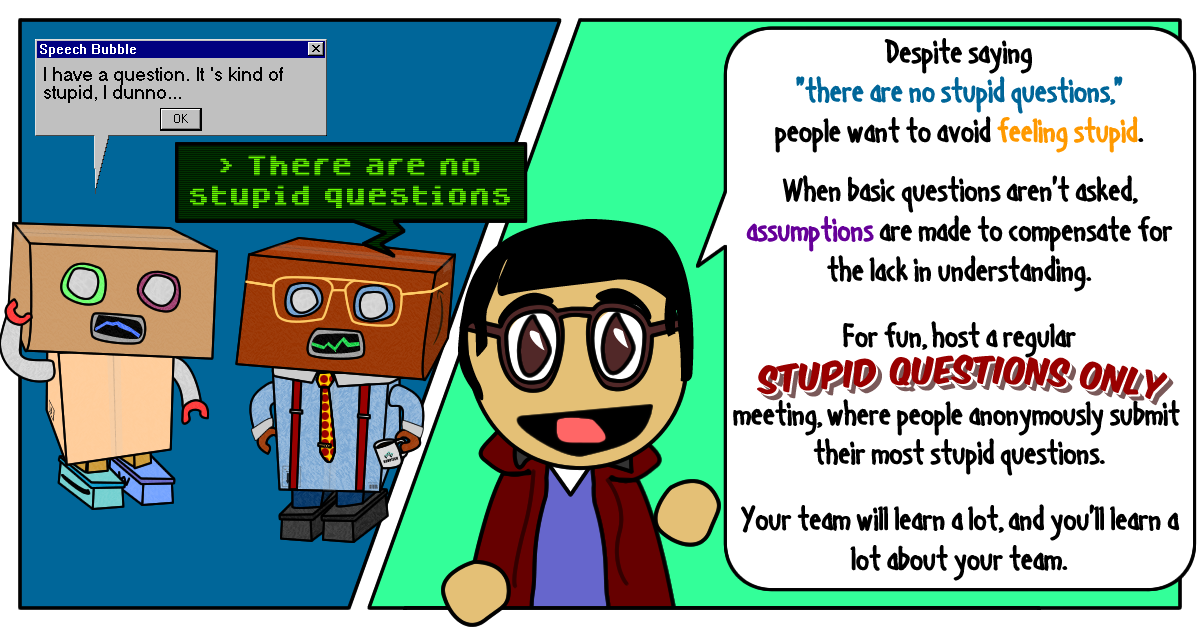There Are No Stupid Questions
No matter how many times you may reassure your team that "there are no stupid questions" - you'll undoubtedly come across moments where a bad assumption was made because someone didn't ask the stupid question.
Everyone has a stupid question - a basic fundamental about the job, how something is supposed to work, why something is important. Especially in organizations where tribal knowledge runs rampant, you'll find a lot of the basics are not as black and white as as they should be. Moreover when you consider that people don't fully retain the nuance of something the first time they hear it (particularly new hires who are drinking from the fire hose) a lot of important information gets missed.
Bad assumptions leads to bad results. Bad assumptions leads to bad code. Bad assumptions leads to bad products.
To resolve this, try regularly hosting a Stupid Questions Only meeting. Attendees can submit (anonymously) their most stupid (but relevant) questions.
Work through the questions as a group. Before the subject matter expert gives the answer - see if anyone in the group will volunteer an answer. Get a sense for where the group's knowledge is. When the SME gives the full picture, take note of how many light bulbs go off.
Document and catalog the questions and responses, because this will be a valuable resource for any new hires later on. It's also a valuable way of reducing tribal knowledge.
Lastly, as an added bonus, gamify things: while the asker should remain anonymous, let attendees vote for the best stupid question of the meeting - that is, the question that covered the most basic topic that had the most enlightening response.
Over time this will help the team really challenge their own assumptions, ask better and better stupid questions.





